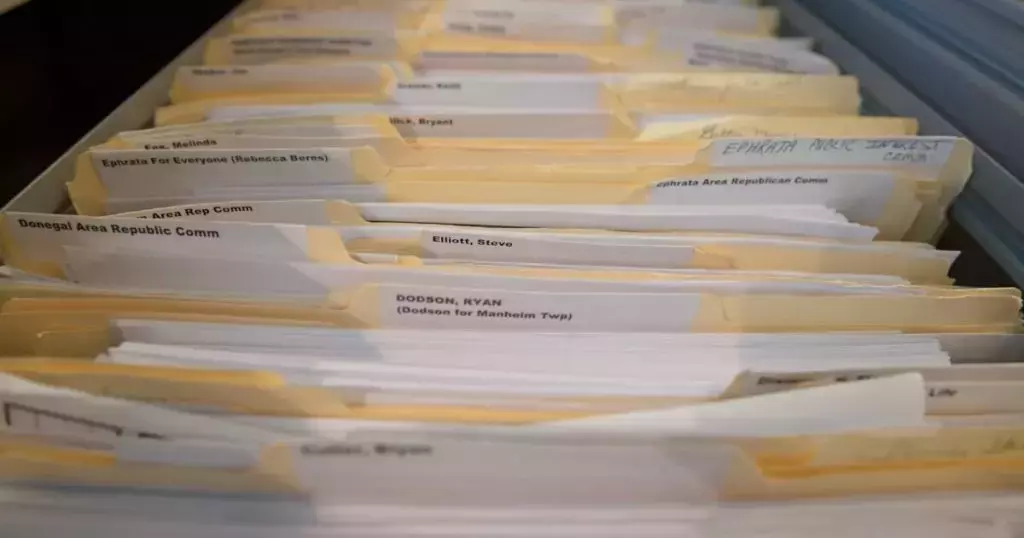Unraveling the Influence of Money in Politics: A Comprehensive Exploration
The influx of money into political campaigns, from local races to the highest offices, has become a growing concern for voters and policymakers alike. As candidates increasingly rely on donor funds to fuel their campaigns, the origins and implications of these financial contributions have become a crucial factor in understanding the political landscape. This article delves into the complexities of campaign finance, shedding light on the transparency, regulations, and potential influence of money in the electoral process.Uncovering the Influence of Money in Politics: A Vital Exploration for Informed Voters
The Increasing Role of Money in Political Campaigns
The influence of money in politics has been steadily rising, with candidates at all levels of government, from state judges and legislators to the U.S. presidency, relying heavily on donor funds to finance their campaigns. These financial resources are primarily used to purchase television advertisements, a strategic move aimed at reaching and persuading as many potential voters as possible. However, the source of these campaign contributions can reveal much about the candidates themselves, their political affiliations, and their priorities.Uncovering the Ideology and Priorities of Candidates Through Donor Contributions
By examining the contributions and their amounts, voters can gain valuable insights into a candidate's political bedfellows and their underlying priorities. According to Robin Kolodny, a political science professor at Temple University, following the ideology of major donors can provide voters with a better understanding of the candidate's own ideological leanings. While money alone may not be able to change a candidate's deeply held beliefs, it can influence the pursuit of certain projects or initiatives over others, potentially shaping the candidate's agenda and policy decisions.The Importance of Transparency in Campaign Finance
Transparency in campaign finance is crucial, as it allows voters to track the sources of funding and potential influences on candidates. Brendan Glavin, a deputy research director at OpenSecrets, a nonprofit organization that makes campaign finance data more accessible, emphasizes the importance of voters knowing where the money is coming from. This information can help citizens make more informed decisions at the ballot box, as they can better understand the interests and motivations behind the candidates they are considering.Navigating the Varying Levels of Transparency in Campaign Finance Reporting
The level of transparency in campaign finance reporting varies across different levels of government. The federal government, through the Federal Election Commission (FEC), maintains a more robust system for collecting and disseminating data on campaign contributions. In contrast, state and local governments often have less sophisticated systems, making it more challenging for citizens to track and analyze the flow of money in political races. As Stephen Medvic, a political science professor at Franklin and Marshall College, notes, "When you go down the various levels of government, from the FEC down to state level down to local level, it just gets harder and harder" for individuals to access and understand this information.Leveraging Resources to Monitor Money in Politics
While the task of tracking campaign finance can be daunting, there are organizations and tools available to assist citizens in their efforts. Groups like OpenSecrets and FollowTheMoney aggregate and analyze data from various government sources, making it easier for the public to access and understand the flow of money in political campaigns. These resources can be particularly valuable in states like Pennsylvania, which has no contribution limits for individual donors, as Glavin points out. By utilizing these tools and resources, voters can gain a more comprehensive understanding of the financial landscape of political races, enabling them to make more informed decisions.Interpreting Campaign Contributions: Avoiding Hasty Conclusions
When examining campaign contributions, it is important for voters to avoid jumping to conclusions based solely on the source of the funds. As Kolodny explains, a local business's contribution to a candidate may not necessarily reflect the business's political affiliation. Large employers often donate to incumbent candidates in their local area, regardless of partisan considerations. Therefore, it is crucial for voters to look beyond the surface-level information and consider the broader context and patterns of contributions to gain a more nuanced understanding of a candidate's support and priorities.The Enduring Power of Grassroots Movements
Despite the significant role of money in modern political campaigns, Kolodny emphasizes that money alone does not determine electoral outcomes. She notes that "nothing will counter a well-orchestrated grassroots movement," underscoring the enduring power of engaged citizens and their collective efforts to influence the political process. This serves as a reminder that while campaign finance is an important factor, it is not the sole determinant of a candidate's success or the direction of the political landscape.

